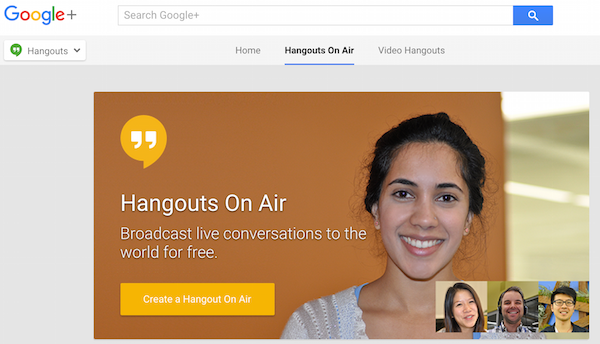Everything I Learned About Digital Media
Are journalism educators asking the right questions about digital and social media?
How do we know when we engage readers? How do we encourage interaction? Do teachers crave feedback and fear silence? If you knew you could be heard, what would you contribute?
As one of the early members of the JEA Digital Media committee, I recognize our progress. At the 2008 JEA/NSPA Fall National High School Journalism Conference in St. Louis, we met in a remote tiny room at the end of a long hallway isolated from the journalism community. This year, Aaron Manful, our committee chair, is the Dow Jones Journalism Teacher of the Year.
We also have published hundreds of posts. Several writers have become contributing authors. At the last convention, we sat at the big person table, but our site is missing something. We are not social.
How can we become social? What are we doing wrong? What could we improve?
Or is it so bad that we should start over?






I think we (and when I say “we” I mean our staff, too) need to do a better job of engaging our readers in conversation when we post to social media. We tend to simply post links to web content rather than asking pertinent questions about that content (along with posting the link). We are still too self-promoting and impersonal.
I also think it’s OK for staff members to comment on social media as well. I didn’t always feel that way, but the more I see professionals who use social media well (like Nicholas Kristof from the New York Times), I see how they really personalize the news for their readers. I think that’s the part that still missing from me from our own attempts at using social media – that personalization. That idea that we’re in an intimate conversation with our readers. That we care about what they have to say.
That being said, it’s been difficult to put into practice. Our school still blocks Facebook (but not Twitter – not sure the difference), so any efforts the students want to try have to come from them on their own time after school. I can’t effectively teach them how to use FB because I can’t show them, which means my hands are tied,
How about anyone else? What are your thoughts on this issue? (See what I did there? I practiced what I preached.)
I agree with Jim. We aren’t really practicing the conversation aspect of social media…which is really what it’s all about. When journalists do it well (like Kristof and Andy Carvin at NPR) I feel much closer to the story as a reader. That said, I do find some of the conversation starters certain publications use to engage readers to be somewhat contrived. When they are bad, they remind me of those silly question “hooks” students use when writing essays. I have never been a fan.
Facebook and Twitter are also blocked at my school. I’ve all but given up on Twitter as a means for broadcasting breaking news — as handy as it is, the student body just doesn’t use it. We have finally established a bit of a following on Facebook, but it requires my students to dedicate time to it outside of school (or I let them make updates from their phones at school…shh, don’t tell).
I think one of the biggest challenges to overcome when it comes to news being truly social is people’s fear of commenting. I know I am usually too intimidated or afraid my comment will be perceived as stupid or unimportant to actually post comments anywhere. As a reader, I want to join the conversation, but I’m not convinced my contribution will be worthwhile. This is a strange contradiction, though, because as a writer I welcome all comments, postive or negative, thoughtful or less so. So while the publication/reporter can try to foster conversation, we also have to understand what will motivate readers to participate. I’m still trying to figure that out.
As educators, we are often asked to teach something that we have not practiced… or that we do not have access to.
The Facebook/Twitter/ Media literacy discussion is a good example. I taught multimedia last year. My district also blocked Facebook, Twitter or Youtube. Often, the internet and computers did not work anyway.
How do we teach media literacy when we do not have access to media?
I am also curious about our lack of commenting on the JEA Digital Media site. Are we publishing and forgetting to distribute? Are journalism educators afraid to comment? Do they know we exist?
I think that if there’s any way we can supervise and demonstrate to our students the stimulating conversation that can be generated from social media that will best help them understand what their goal should be. This could be done via screenshot of a good Facebook conversation, or a transcription of a good Twitter chat that could be handed out to students in the classroom.
However, I think that’s the biggest problem I hear about from districts all over. They block these sites rather then spending time teaching students to use them. I wouldn’t have as big of a problem with it if they dedicated some time to discussing cyberbullying and proper social media etiquette within the school, but instead they just block and ignore, leaving the students to make mistakes on their own- often without adults there to help guide them through this new communication method.
Sorry, I feel like I’m getting off the topic that Bryan wanted us to focus on.I think we need to spend a lesson or two in our classes discussing better ways to use social media rather than just posting links. I think models of good conversations would be a good start. Perhaps someone out there has examples of those already that they use, which we could share with one another, and possibly the larger JEA community, to use in our classrooms?
In regards to being social on JEA Digital Media, I think taking the same approach on social media sites is key. Asking questions on Facebook and Twitter will hopefully encourage our members to become more social, respond to a specific topic, and generate new and exciting ideas.
Kyle,
You are exactly ON TOPIC… or topics.
Our membership has tremendous experience. We share resources. We just do so elsewhere. Even since I posted these questions, a new teacher has asked how to receive approval from her district for a few youtube videos. There are ten replies already. This information is important to share with our community. It is also important to share with a larger community who is interested in education who wonders why we do not teach certain topics.
I suspect that if we were to survey most high school parents, the majority believes that teachers have access to Facebook, Twitter and Youtube. If we were to survey most teachers, we would know something different.
bf
First – I’m lucky that teachers have passwords to get around sites like Facebook, YouTube, etc. Not ideal, but something I can live with. Funny how there are still unblocked game sites that the kids can find, lately Robot Unicorn Heavy Metal.
Second – I’m wondering if we’re addressing a concern for the internet at large – only a small percentage of any site’s readers will comment much. I read an article last year about how few women post information on Wikipedia and how that affects the content of the site. Shoot, we’ve had that problem with teacher meetings, where many people feel like they have nothing to contribute to the conversation, or that their comments aren’t welcome, or they just would rather not speak up for whatever reason.
Great discussion here, and I appreciate the questions Bryan raises. One thing for us to remember, however, is that JEAHELP started in 1998. Sure, posts here don’t generate the same response as questions sent to the listserv, but in the big picture, this site is pretty new. I think some of the suggestions above are solid suggestions for how we increase engagement and use this as a tool, but we can’t be too hard on ourselves.
I really appreciate Kristy’s mention about online comments. It’s ironic that in our specialized community, we sometimes think our comments may not be “worthy” and therefore shy away from posting when in the general public, those who post seem not to give it a moment’s thought and are quick to share inaccurate, cruel or ignorant comments. I think a great classroom resource would be some links to (or printed screenshots of) posts that generated lively, meaningful discussion.
One thing my students try to do with their social media accounts is send a personal message when someone retweets, links, shares, comments (etc.) to something from us. It just shows that we noticed and appreciate the participation, and that helps build more of a relationship for future interaction and engagement.
I like that idea of the personal message, Sarah. I think I know what I’ll talk to my kids about on Monday.
Thank you Sarah, Jim, Holly, and Kristy for replying.
I have become committed to this project, because I feel that I owe JEA. When I attended my first national conference, I was welcomed into the community immediately.
JEA members have helped me find my voice and I have been able to help others. Without JEA, my life would not be as rich.
I also know that JEA could benefit more people and become stronger. I have witnessed the organization change my life and the lives of many other educators and students.
Great ideas by all. We are caught in a similar trap of having twitter available at school but not enough of our student body on it, no facebook at school but everyone on it, and a staff that posts nothing but links to our stories on twitter.
Love the idea about posting thought-provoking questions on twitter relating to the link rather than just the link itself. We’ll give that a whirl this week.
And I couldn’t agree with Bryan more about owing something to JEA … let me know what I can do to help.
Pingback:Are you pregnant or a CNN Triathlete | jeadigitalmedia.org
The Facebook block at school drives me crazy. My student editors use HootSuite during the day to get around it. The fact that high schools do not require a course in responsible uses of social media is a real disservice.